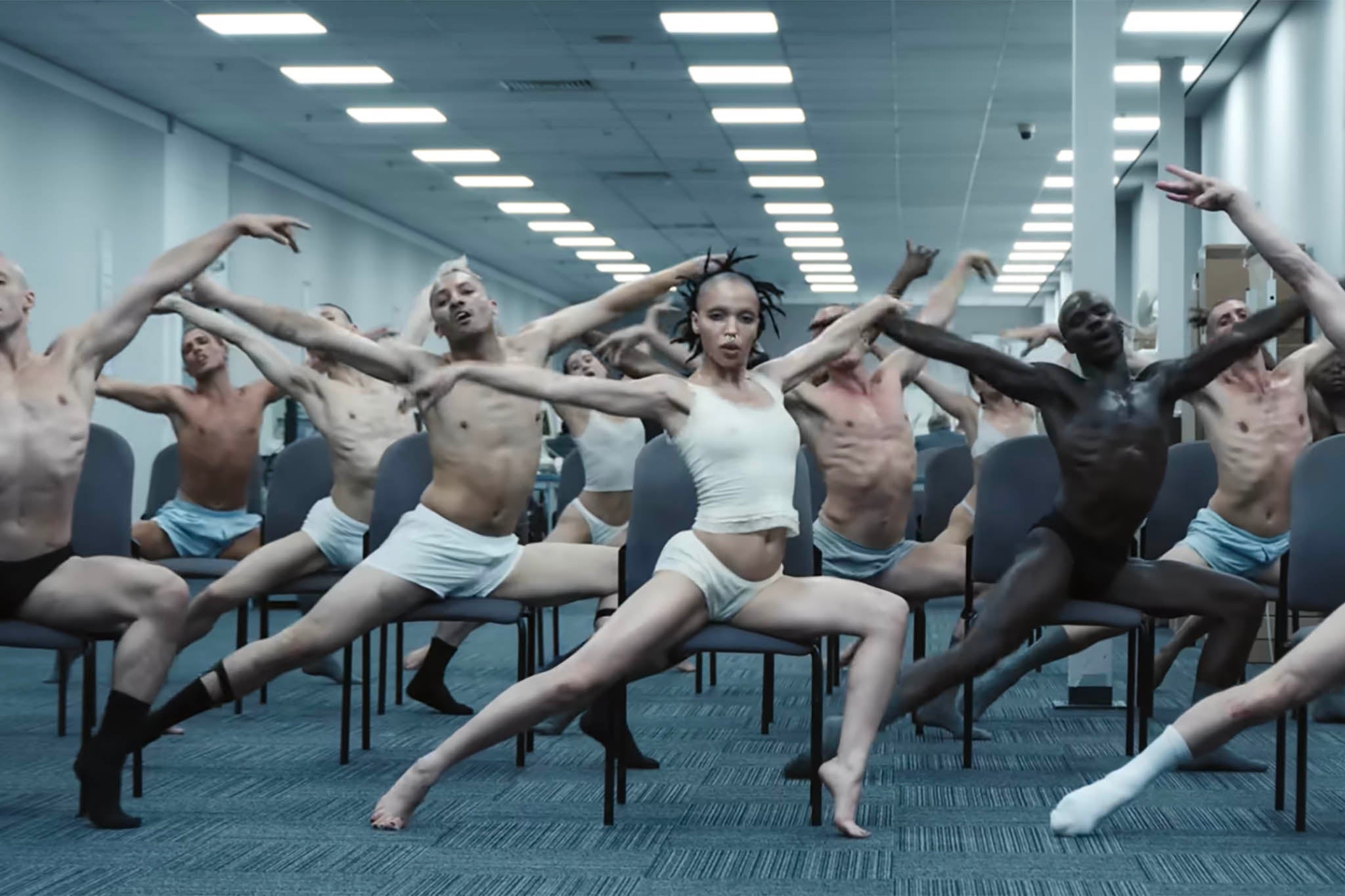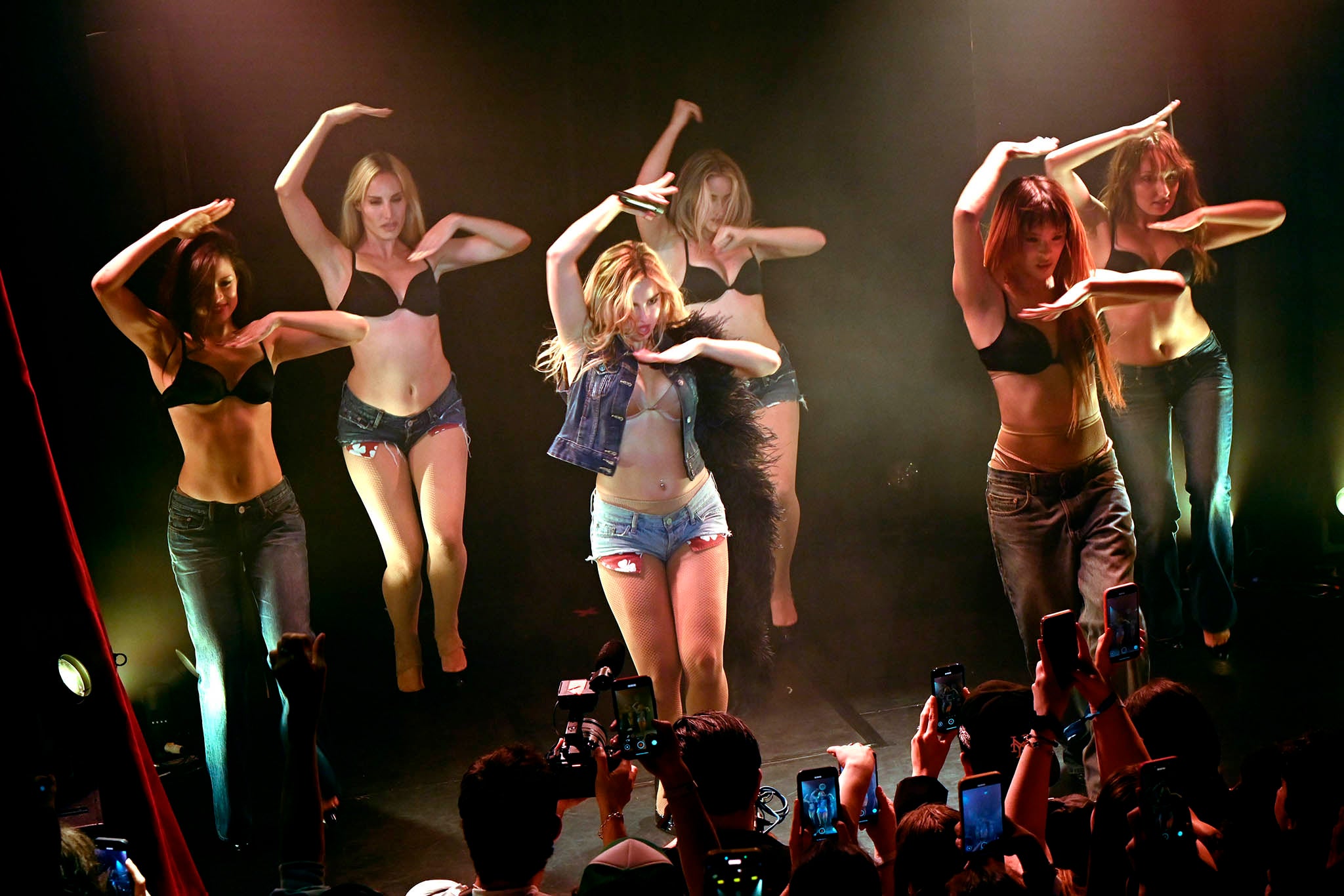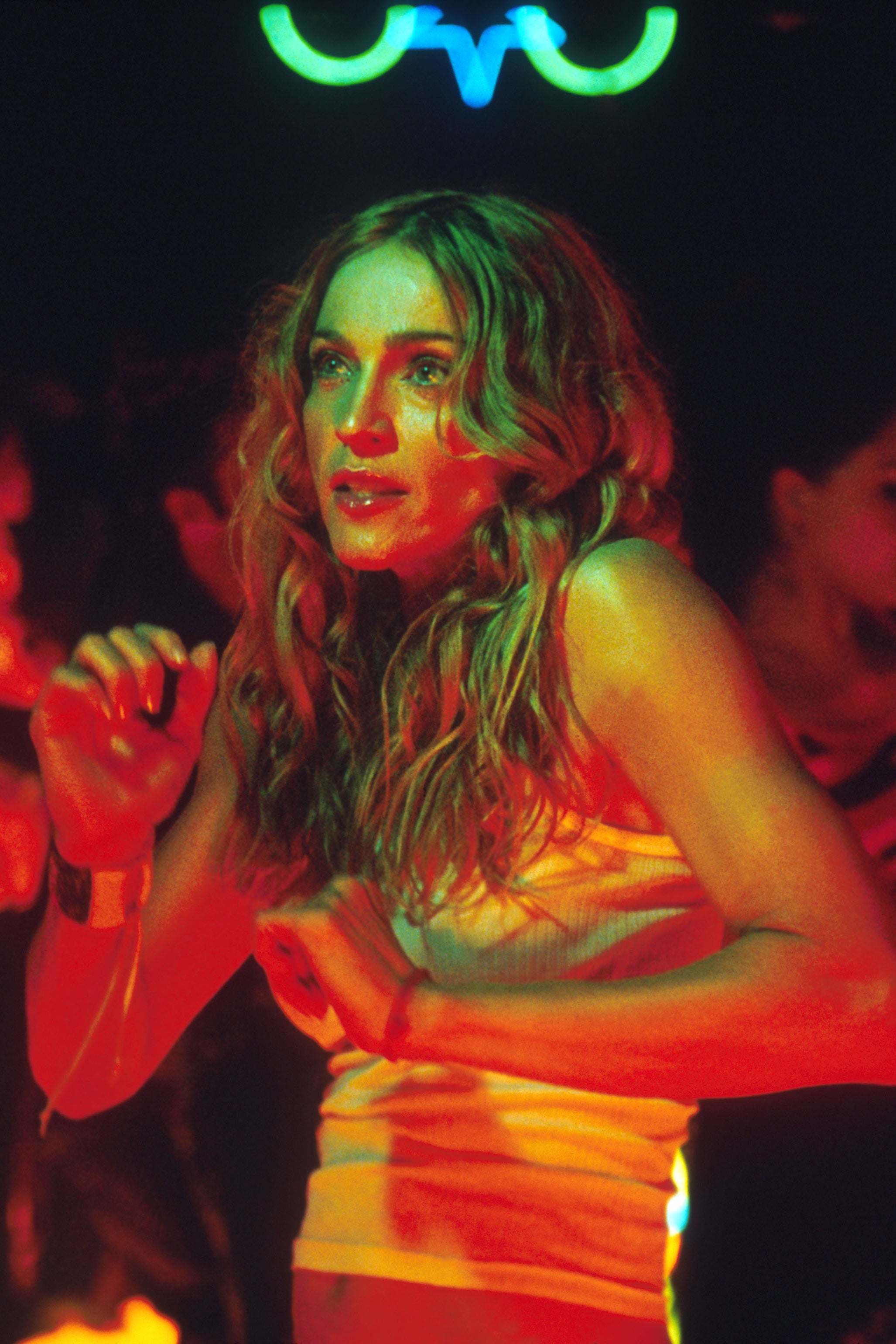This April, Madonna published a message on her Instagram as kind as it was subtly threatening. “Did you see so-and-so copied you?” Madonna is asked, in this hypothetical but presumably factual exchange – one as likely to have taken place in 1992 as it is 2025. “God forbid a woman takes inspiration,” Madonna coolly replies. The dialogue, pasted on top of an image of the star strutting down a London street in shades, was accompanied by a further caption: “I see you, I love you. You’re doing great sweeties.”
Madonna has thawed over the decades, both when it comes to her own back catalogue (her 2023 greatest-hits tour would have been unthinkable a handful of years earlier) and her relationship to the many artists who’ve cast themselves in her image. But there’s still a glint of prickly, passive-aggressive menace to how Madonna views the pop world – a kind of “I know, adore and support the fact that you’re ripping me so brazenly off” – that feels uniquely, hilariously her. Case in point: the announcement, just a few weeks after her Instagram post, of a long-rumoured collection of remixes locked in the Madonna vault since the late Nineties, each of which feels like a sonic blueprint for the exact kind of music currently being produced by music’s most outré pop girlies, from FKA Twigs and Addison Rae to Arca, Caroline Polachek and Erika de Casier. Jade, Britain’s next big pop hope, even threw out a cover of Madonna’s stark ballad “Frozen” in March. God forbid a woman takes inspiration.
Veronica Electronica, which is released tomorrow, takes its name from an alter ego Madonna teased in 1998 during the promotion for Ray of Light – her sensual, nocturnal dance record that housed hits such as “Frozen”, as well as “Drowned World/Substitute for Love”, “Nothing Really Matters” and the still-dazzling title track, with its twisting, twirling techno melody and euphoric vocals. A remix album bearing the Veronica Electronica title was mooted for release a year later, until Madonna grew distracted by sessions for her 2000 record Music – an album that would build upon her work with Ray of Light’s key producer, the spacy genius William Orbit, as well as the French electronica pioneer Mirwais Ahmadzaï.
In keeping with the shambolic rollout of Madonna’s back catalogue in recent years – extensive re-issues announced in 2021, for instance, have yet to materialise – Veronica Electronica is ultimately a bit of a damp squib. Instead of unearthed material from 1998, the album boasts lightly tweaked versions of remixes already present on the original Ray of Light CD singles, along with one genuinely new demo track. Orbit himself has voiced his disappointment. “Given how much the Ray of Light album has meant to so many of us, there could be something really wonderful – reworkings, remixes from the decades,” he wrote on his Facebook page. “Going deeper into that special place.” Madonna, pop’s most marvellous troll, is back at it again.
But whether it’s truly new or not, Veronica Electronica feels like an attempt to root the pop sounds of 2025, as if to remind modern listeners of the inky, plaintive dance music from whence they came. It is a truth universally acknowledged that everything in pop music sounds like Madonna, because Madonna is more or less all pop music, or at least the template for everything we recognise as female pop stardom today. But it’s been more pronounced than usual lately, with the year’s two best pop records – FKA Twigs’s Eusexua and Addison Rae’s Addison – both fusing traditional pop hooks with a chilly, introspective, ambient gloom, much like Madonna did on Ray of Light and Music.

On January’s Eusexua, a portmanteau of “euphoria” and “sexuality”, Twigs shifts out of the eerie midtempos of her earlier material and into full-blown experimental pop. There is an almost cyborgian eroticism to the record, her vocals warped into metallic purrs, the production bubbling and curdling underneath her toplines. “Girl Feels Good”, a slinky celebration of female sexuality co-produced by Ray of Light’s Marius de Vries, is a clear highlight, shifting from a sparse oddity into a busy lab experiment full of dramatic strings and glitchy synths. It could be lifted from turn-of-the-century Madonna – which Twigs herself has directly acknowledged, performing the track on her tour with choreography borrowed from the video of Madonna’s 2000 folktronica masterpiece “Don’t Tell Me”.
Six months on from Eusexua came Rae’s full-length debut Addison, which traded the Britney-aping power-pop of the former TikTok star’s early EPs in favour of lush trip-hop and sensuality. It’s partly out of necessity: Rae is not a powerhouse of a vocalist but a 24-carat whisper singer, Addison’s soundscape matching the limitations of its star’s pipes. But it helps evoke a gorgeous airiness across the record’s 12 tracks (its producers have stated Ray of Light was a key influence). Rae’s lyrics are often abstract and opaque, like dream logic, or what comes out when you pop a foreign language into Google Translate (“Tell me who I am, do I provoke you with my tone of innocence?”).
Addison is far less ruminative than Eusexua, but both are swaddled in a kind of gentle melancholy. Much like Ray of Light, this is music by artists clawing their way out of emotional funks. “Times Like These”, on Addison, sees Rae pondering the uncertainty of young adulthood (“Head out the window, my song on the radio/ Head out the window, let’s see how far I’ll go”) and gesturing towards distant pain (“Am I too young to be this mad?/ Am I too old to blame my dad?”). You leave the record sensing that she is testing the waters when it comes to autobiography, planting just enough breadcrumbs to keep the listener intrigued for album two.

FKA Twigs’s pain has been far more public. Eusexua was born in the aftermath of a series of personal struggles that – because of their proximity to other celebrities – for years eclipsed Twigs’s actual music in the mainstream sphere. Her relationship with the actor Robert Pattinson saw her targeted by racist trolls, then she sued her former partner, the actor Shia LaBeouf, and accused him of sexual assault and “relentless” abuse, allegations he denied. (The pair this week reached a settlement). In interviews, she described Eusexua as the sound of finding healing in dance and electronica. “I wanted to create something for my body that felt free and felt good,” she said last year. “I’ve had to learn how to use and live in my body again.”
While Madonna is known for her steeliness – that sense that she’s almost infallible when it comes to criticism or emotional setbacks – Ray of Light was itself born of pain. She called the period prior to its recording her “rock bottom”, in which she faced relentless backlash over her sexually provocative output, questions about her marketability and relevance in an increasingly busy pop landscape, and a resulting crisis of confidence. “I think Madonna’s been of the opinion that it’s self-indulgent to admit sadness and loneliness,” her friend, the filmmaker Alek Keshishian, told Vanity Fair in 1998. “Before, it was always, ‘I have no regrets.’ This time it’s [quoting ‘Drowned World/Substitute for Love’] ‘...now I find I’ve changed my mind.’ That, to me, takes a great amount of courage.”

Ever a magpie, she sought to replicate sounds on the pop fringes – Bjork, Massive Attack, Everything But the Girl, Tricky – and blow them up to their most commercially viable. (As if something was in the water, Janet Jackson and Kylie Minogue both released their most sonically interesting albums to date – 1997’s The Velvet Rope and Impossible Princess, respectively – around the same time.) Ray of Light touches on grief, faith, depression and nascent motherhood – Madonna had given birth to her first child just over a year earlier. The record was a smash, selling 16 million copies worldwide and netting Madonna four Grammys. Orbit was himself transformed into pop’s go-to producer for a time, too, working his magic in the studio for No Doubt, Blur, Melanie C and – most satisfyingly – on All Saints’s “Pure Shores”, arguably the most serene piece of Y2K ear-candy put to record.
And now we’re here. Why the resurgence of this particular Madonna sound? Call it a kind of musical reset, perhaps, from the wordy, wink-wink-nudge-nudge of Sabrina Carpenter and Chappell Roan or the maximalist, Eighties-tinged pop of Dua Lipa or the non-industrial segments of this year’s middling Lady Gaga comeback record. Or maybe it’s even a response to the newfound, post-Covid allure of sweaty, underground nightclubs and dancing with strangers. The “Ray of Light” video concludes with Madonna losing her mind, all by herself, on a crowded dancefloor – just one restless speck of humanity in a massive universe beyond any of our comprehension. Haven’t we all felt that way at least once in the past few years?
Whatever the reason, Veronica Electronica is here to remind us of who dove into this terrain first. Or if not first, at least the most successfully. And where’s the harm in that?
‘Veronica Electronica’ is released 25 July
The strange story behind one of John Lennon’s favourite bands
Ozzy Osbourne flung open hell’s musical gates – and changed the world
Damon Albarn says Oasis has finally beaten Blur – but he knows it’s not true
Wolf Alice: ‘I’m a private person – why am I airing my dirty laundry?’
Billie Marten: ‘Mostly, artists are in financial ruin however successful they appear’
‘I’d broken out of the cult’: When Robbie Williams quit Take That







